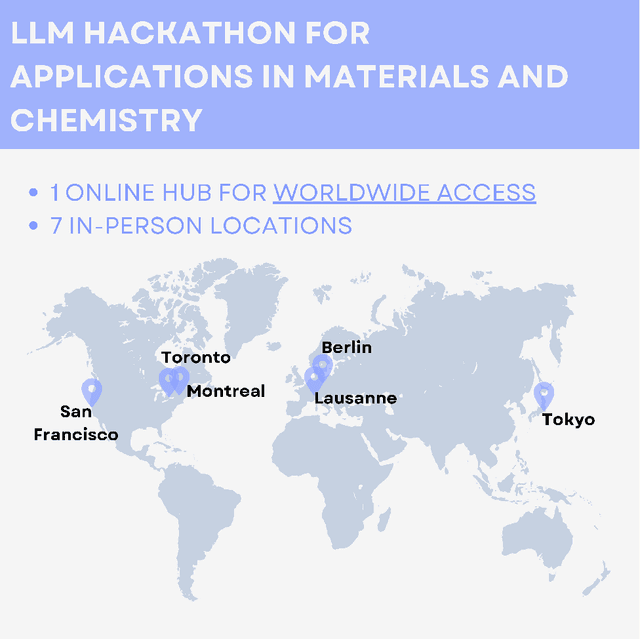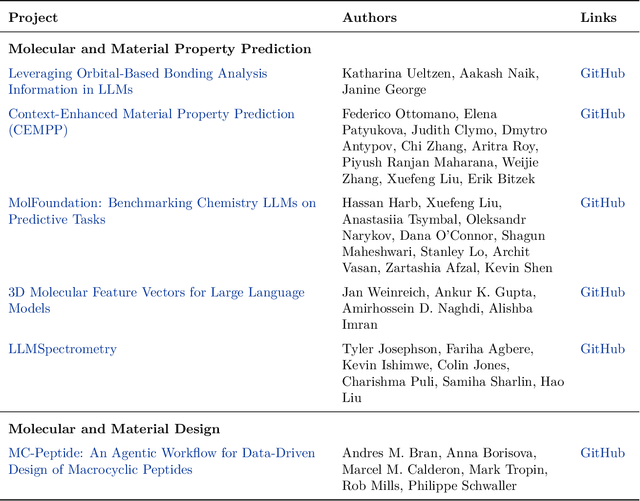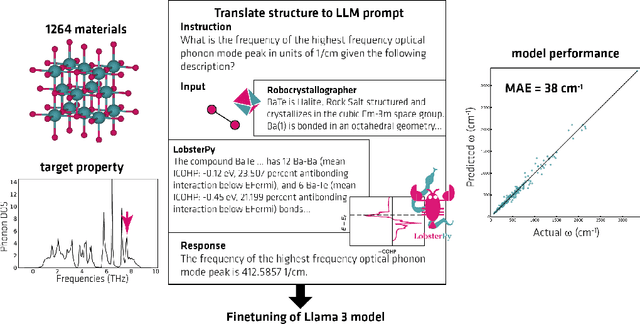Vraj Patel
Reflections from the 2024 Large Language Model (LLM) Hackathon for Applications in Materials Science and Chemistry
Nov 20, 2024



Abstract:Here, we present the outcomes from the second Large Language Model (LLM) Hackathon for Applications in Materials Science and Chemistry, which engaged participants across global hybrid locations, resulting in 34 team submissions. The submissions spanned seven key application areas and demonstrated the diverse utility of LLMs for applications in (1) molecular and material property prediction; (2) molecular and material design; (3) automation and novel interfaces; (4) scientific communication and education; (5) research data management and automation; (6) hypothesis generation and evaluation; and (7) knowledge extraction and reasoning from scientific literature. Each team submission is presented in a summary table with links to the code and as brief papers in the appendix. Beyond team results, we discuss the hackathon event and its hybrid format, which included physical hubs in Toronto, Montreal, San Francisco, Berlin, Lausanne, and Tokyo, alongside a global online hub to enable local and virtual collaboration. Overall, the event highlighted significant improvements in LLM capabilities since the previous year's hackathon, suggesting continued expansion of LLMs for applications in materials science and chemistry research. These outcomes demonstrate the dual utility of LLMs as both multipurpose models for diverse machine learning tasks and platforms for rapid prototyping custom applications in scientific research.
Shayona@SMM4H23: COVID-19 Self diagnosis classification using BERT and LightGBM models
Jan 04, 2024Abstract:This paper describes approaches and results for shared Task 1 and 4 of SMMH4-23 by Team Shayona. Shared Task-1 was binary classification of english tweets self-reporting a COVID-19 diagnosis, and Shared Task-4 was Binary classification of English Reddit posts self-reporting a social anxiety disorder diagnosis. Our team has achieved the highest f1-score 0.94 in Task-1 among all participants. We have leveraged the Transformer model (BERT) in combination with the LightGBM model for both tasks.
 Add to Chrome
Add to Chrome Add to Firefox
Add to Firefox Add to Edge
Add to Edge